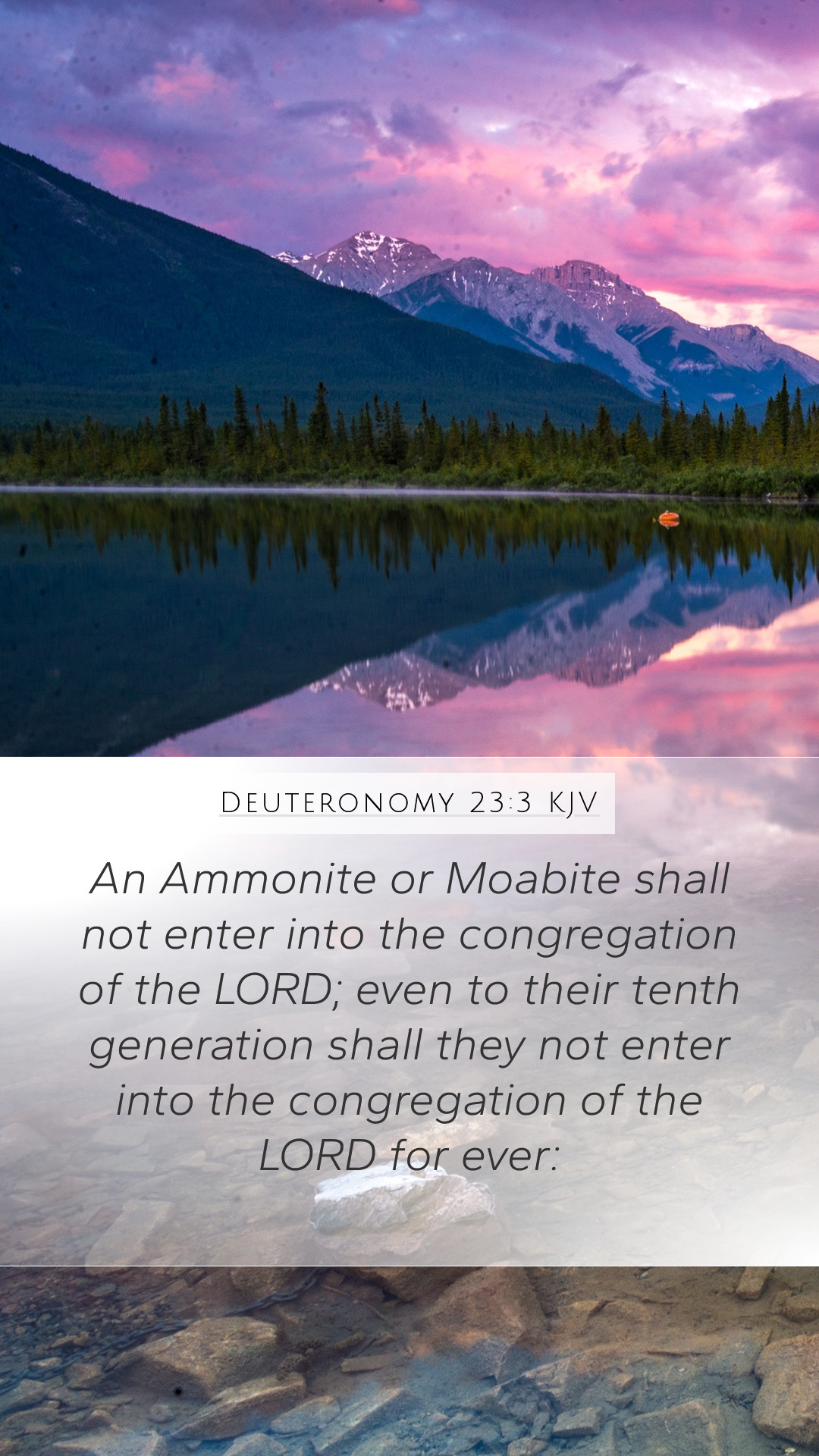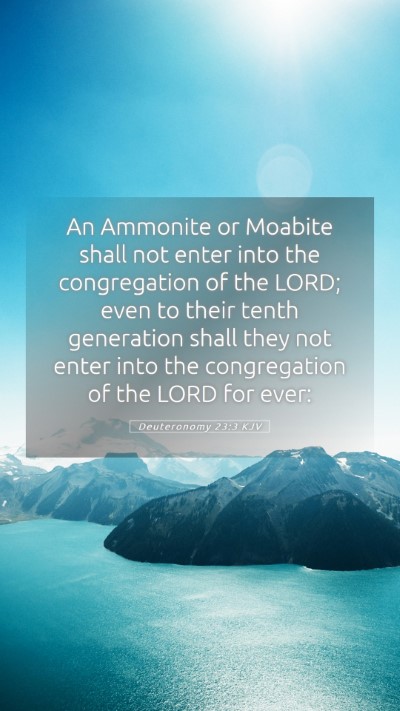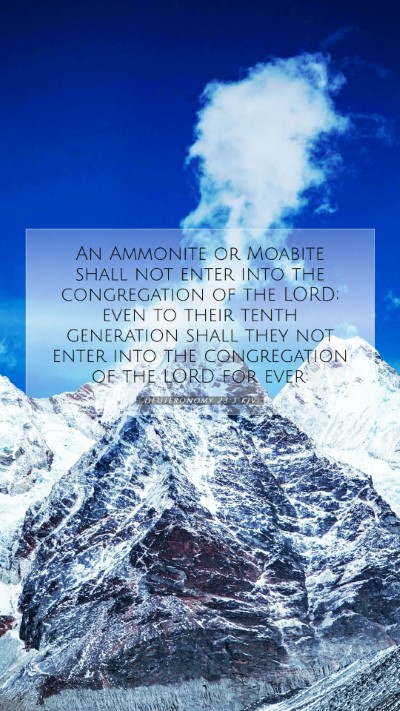Bible Verse Explanation: Deuteronomy 23:3
Verse: "An Ammonite or Moabite shall not enter into the congregation of the Lord; even to their tenth generation shall they not enter into the congregation of the Lord for ever." (Deuteronomy 23:3)
Introduction to the Verse
This verse falls within a broader context where God provides guidelines for the Israelites regarding who may participate in communal worship and religious gatherings. The prohibition against Ammonites and Moabites serves as a reflection of Israel's unique covenant relationship with Yahweh.
Meaning and Insights from Commentaries
Matthew Henry's Commentary
Matthew Henry emphasizes that this verse illustrates the seriousness of maintaining the purity of worship within the Israelite community. He notes that the Ammonites and Moabites represented nations that had historically opposed Israel and led them into idolatry and immorality. The stringent restrictions were meant to preserve the spiritual integrity of the congregation.
Albert Barnes' Commentary
Albert Barnes highlights the historical context, explaining that Ammonites and Moabites were descendants of Lot, Abraham’s nephew. He explains that their early hostility towards Israel—specifically, when they refused to provide assistance during the Exodus—merited this exclusion. Barnes stresses that the phrase "to their tenth generation" symbolizes a lasting judgment, ensuring that their descendants would also abide by this prohibition.
Adam Clarke's Commentary
Adam Clarke provides additional context by exploring cultural norms of ancient Israel. He suggests that these restrictions focus on the idea of maintaining a distinct identity among God’s chosen people. Clarke points out that exclusion from the assembly is significant, as it denotes a lack of fellowship with God’s covenant community, which is central to biblical worship and societal structure.
Theological Implications
The theological implications of Deuteronomy 23:3 extend beyond the historical context. This verse raises profound questions about inclusivity and covenantal relationships in biblical theology. As part of scripture analysis, it challenges readers to reflect on how divine laws communicate the nature of God and His expectations for holiness among His people.
Practical Applications
In applying the lessons from Deuteronomy 23:3 to daily life, one can consider the larger themes of exclusivity in spiritual practices and the importance of communal integrity. Reflecting on this can lead to discussions in Bible study groups about how modern believers maintain purity in faith practices amidst diverse influences.
Cross References
- Exodus 34:16 - Further discusses interactions with the surrounding nations.
- Deuteronomy 7:2-3 - Emphasizes the need for Israel to avoid intermarrying with certain nations.
- 2 Corinthians 6:14 - Discusses the principle of not being unequally yoked with non-believers.
Conclusion
Deuteronomy 23:3 serves as a reminder of the significance of maintaining spiritual purity and the importance of understanding the historical context surrounding biblical commandments. For those seeking Bible verse meanings or interpretations, this passage provides much fodder for reflection and study. Whether through online Bible study resources or group discussions, there are ample opportunities to delve deeper into the significance of this verse.


